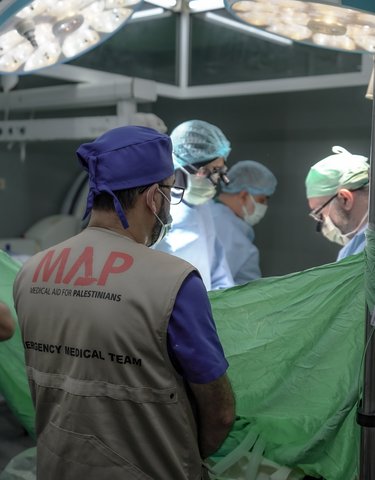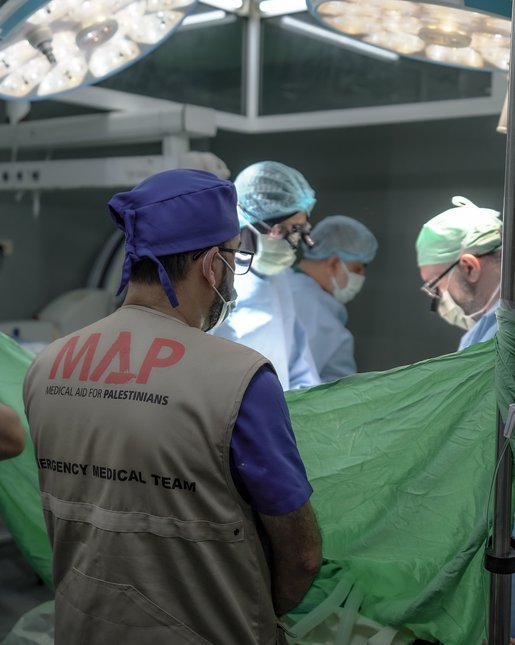Inclusion, independence, and dignity: Supporting people with disabilities to attain their rights in Gaza
19 December 2022
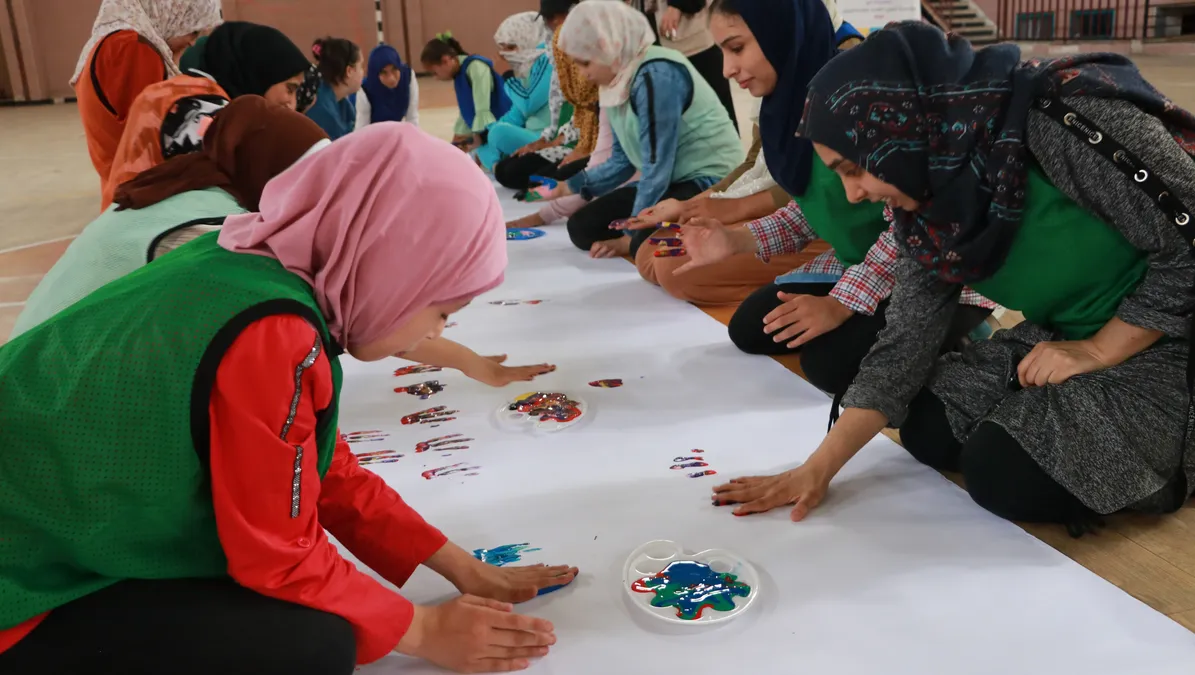
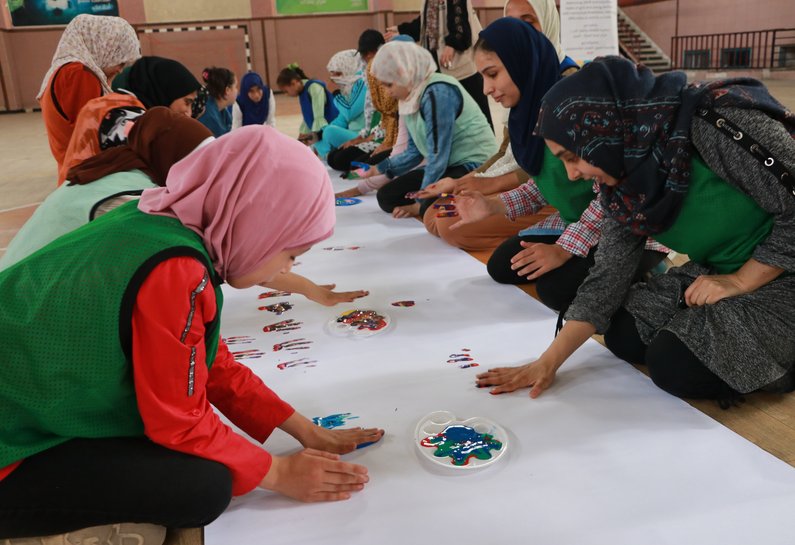
According to the Palestinian Central Bureau of Statistics, almost 7% of the population of Gaza has a disability. The unemployment rate among the general population is among the highest in the world at 44%. For people with disabilities, this rate rises to over 90%. As a result, the majority of people with disabilities and their families are largely dependent on humanitarian assistance.
Medical Aid for Palestinians (MAP) promotes and advocates for inclusion for and accountability to people with disabilities, applying a social and rights-based approach to our programmes. As well as ensuring quality medical care where it is needed, we focus on removing barriers to people with disabilities’ full participation in society, whether that means accessing services, education, employment or cultural and social activities. With our partners, we help equip people with disabilities with the skills and tools they need to confront negative attitudes and play an active role in the development of their communities.
In July 2020, MAP examined the barriers to inclusion for people with intellectual disabilities, learning difficulties and autism in society in Gaza, and MAP’s programmes more specifically. The table below summarises our findings:
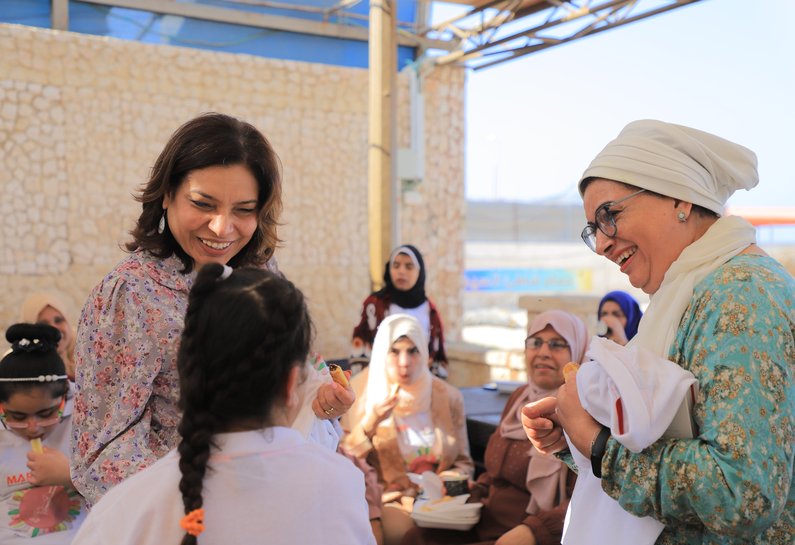
Growing up in this difficult context is particularly challenging for children with disabilities and their parents. “Parenting a child with an intellectual disability is difficult, especially in a place like Gaza. Parents often experience grief, resentment, disappointment and frustration,” explained Amal Zaqout, MAP’s Programme Officer. As a result, families often need considerable social and psychological support.
Recognising this need, MAP is working with two local partners in Gaza – the Culture and Free Thought Association (CFTA) and the Abdel-Shafi Community Health Association (ACHA) – who are experts in sexual and reproductive health and have vast experience of working with girls and women with disabilities and their families, to address barriers to their rights. We also worked with the Stars of Hope Society, an expert advisory organisation on intellectual disabilities and learning difficulties, to provide systematic and well-designed support to communities.
“Girls and young women with intellectual disabilities are still the least likely to access services in Palestinian society, compared to women and girls who suffer from other disabilities, The services provided are limited and there is a lack of mechanisms and data to deal with their needs. This negatively affects their health, social rights and their right to sexual and reproductive health,” said Iyad, the General Director of Stars of Hope Society.
“Without a true recognition of the negligence and marginalisation facing these girls, they will continue to suffer from social stigma and violence.”
Over two years, MAP has supported 110 girls and young women with disabilities, with each local partner working with 55 girls and their families. We have provided mental health and psychosocial support and assistive devices, raised awareness about sexual and reproductive health rights, and provided caregivers and girls with the tools to stand against social stigma.
Without a true recognition of the negligence and marginalisation facing these girls, they will continue to suffer from social stigma and violence.
Together, this work has resulted in improvements to the girls’ level of independence in performing certain day-to-day activities and functions, as measured by the ‘Activities of Daily Living’ (ADL) assessment. For example, the proportion of girls dependent on a caregiver for feeding themselves reduced from 50% to 42%, and for bathing and personal hygiene reduced from 46% to 40%. Improvements were also assessed in dependence on caregivers for communication with others (51% to 45%), vocational skills (89% to 78%), and cognitive skills (56% to 49%).
Participants have reported the significant difference this support has made to their lives. One mother of a girl supported by the project recently told MAP: “My daughter suffers from cerebral atrophy. I never expected her to be as social and confident as she is now. I can finally take her with me to family gatherings, she can look after herself and even sometimes help me around the kitchen.”
Rana, another girl who received support, said: “I love drawing and it is one way to express who I am. I always draw a crying eye and a broken heart because that’s how I feel when people bully me or make fun of the way I look. I felt happy and strong when my drawings were printed on T-shirts for our [recreational] trip. I think I’m getting stronger and can challenge some of the bullying now.”
To continue supporting the vital work of MAP and our partners upholding the rights and dignity of people with disabilities in Palestine and Lebanon, please make a donation today.
